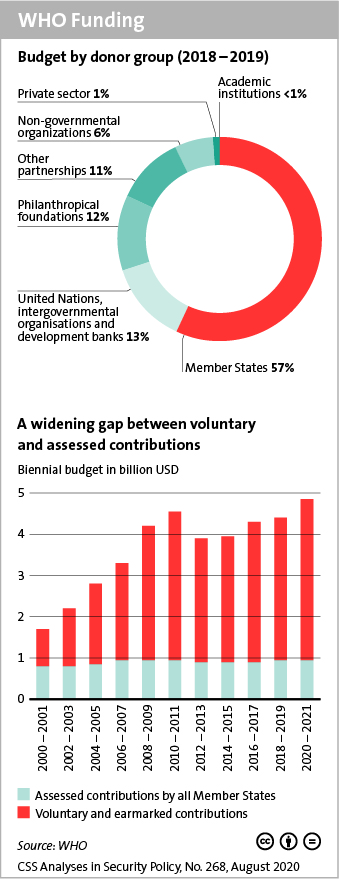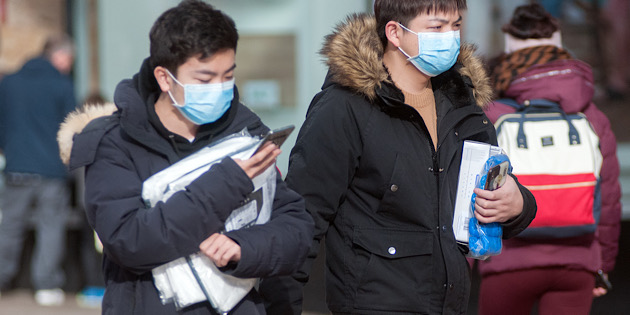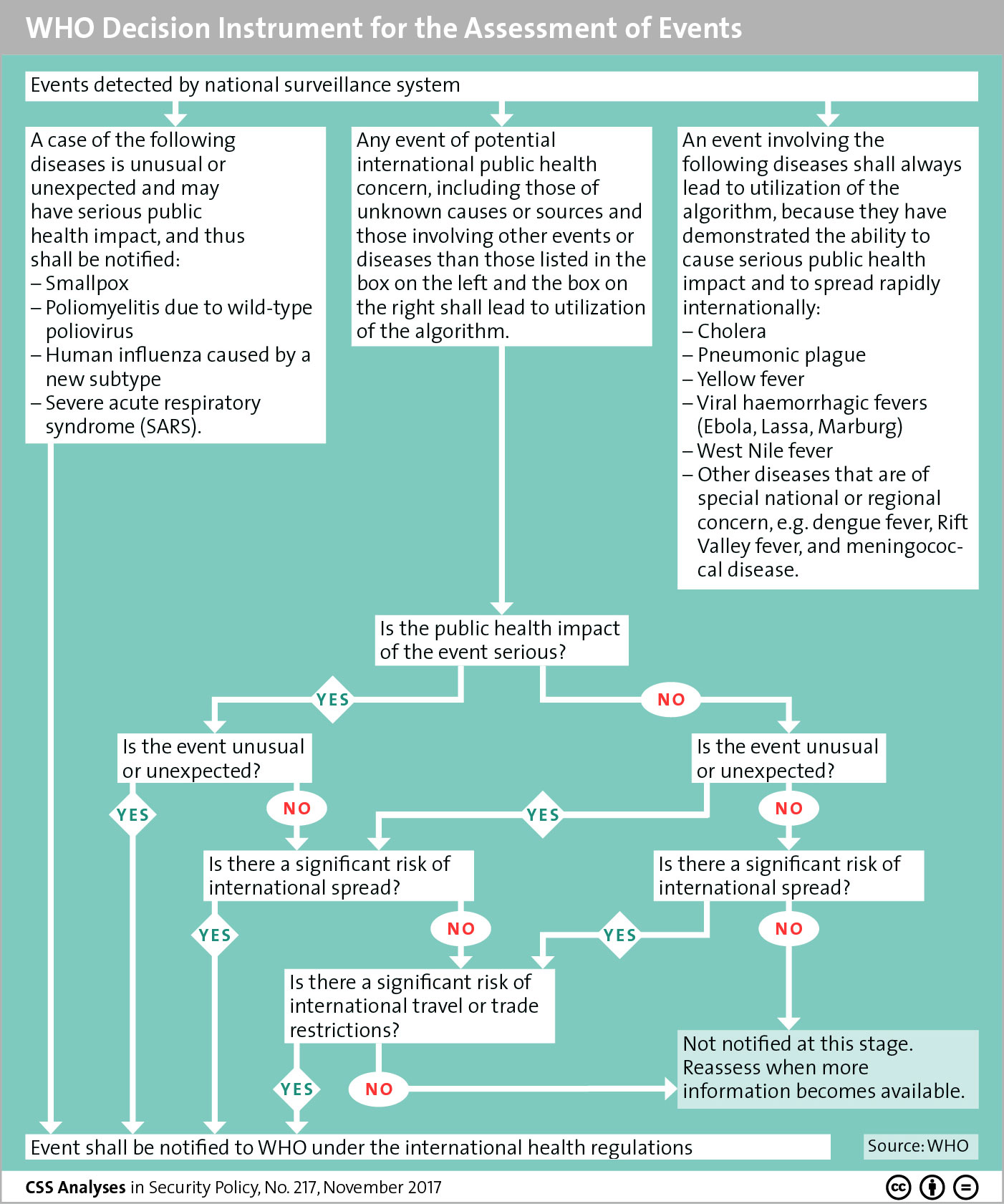
This graphic outlines the World Health Organization’s funding by donor groups, as well as assessed and voluntary contributions. Countries are still the most important sources of funding, contributing almost 60 per cent of the agency’s budget. Its dependency on voluntary donations makes it particularly difficult for the WHO to put its donors under too much pressure.
For more on the WHO’s alleged pro-China bias during the coronavirus pandemic, read Jan Thiel’s CSS Analysis in Security Policy here.




